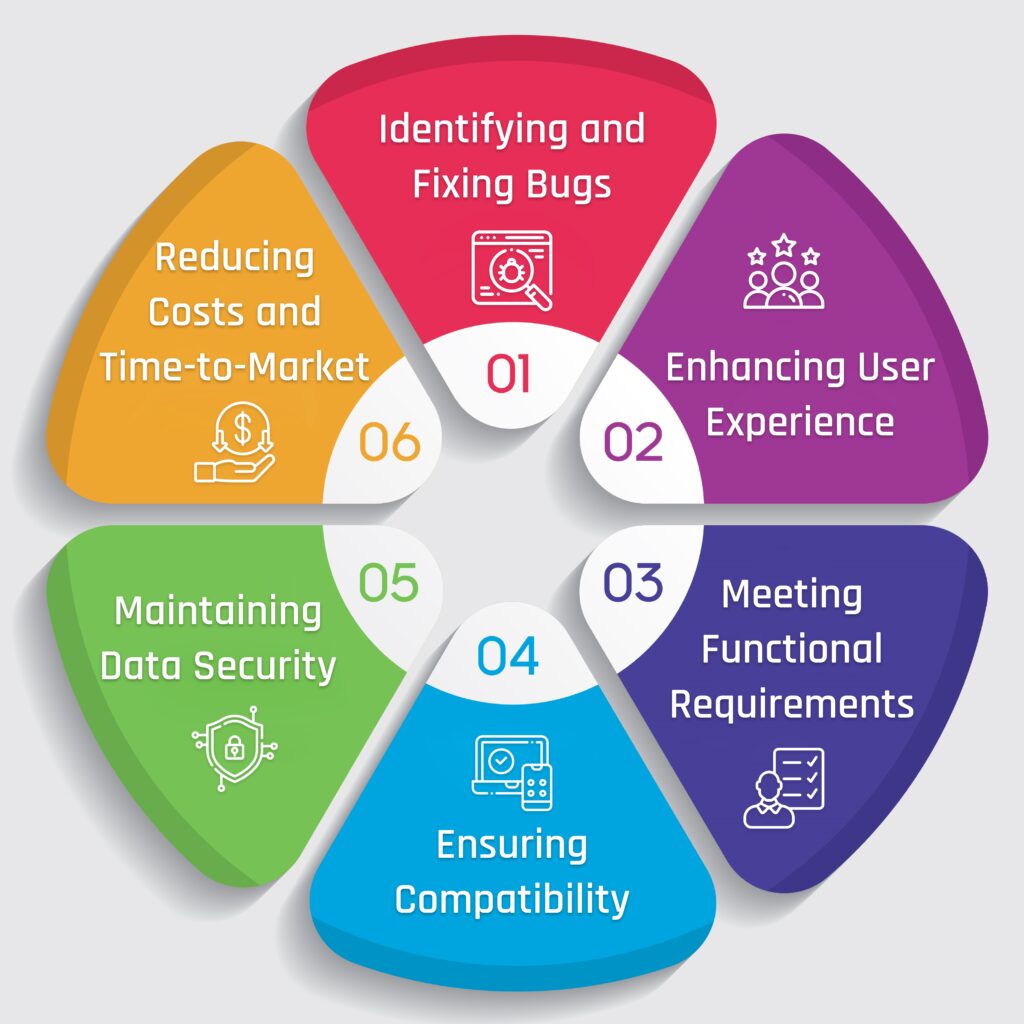In today’s rapidly evolving digital landscape, software has become an indispensable part of our lives, powering various devices and services that enhance our daily experiences. As software development progresses at breakneck speed, delivering high-quality applications has become more critical than ever. Enter Quality Assurance (QA) testing – a meticulous and indispensable process that ensures software meets the highest standards before it reaches the hands of users. In this blog, we delve into the importance of Quality Assurance testing in software development and explore how it drives excellence, fosters customer satisfaction, and boosts business success.
Identifying and Fixing Bugs
One of the primary objectives of Quality Assurance testing is to identify and eliminate bugs or defects within the software. These bugs can range from minor glitches to critical issues that could lead to system failures or security breaches. By conducting comprehensive QA testing throughout the development cycle, developers can identify potential problems early on, reducing the cost and effort required to fix them. This not only enhances the reliability and stability of the software but also ensures a smoother user experience.
Enhancing User Experience
A positive user experience is the key to a successful software product. QA testing plays a crucial role in ensuring that the application functions intuitively, is user-friendly, and meets the needs and expectations of its intended users. By simulating real-world scenarios, QA testers can pinpoint usability issues and suggest improvements, ultimately resulting in a more enjoyable and satisfying experience for users.
Meeting Functional Requirements
In software development, adhering to functional requirements is fundamental to success. QA testing verifies whether the software performs as intended and aligns with the specified requirements. This rigorous testing process ensures that all features and functionalities are working correctly and efficiently, preventing potential roadblocks in the software’s performance.


Ensuring Compatibility
In today’s diverse technology landscape, software runs on a multitude of devices, operating systems, and browsers. QA testing allows developers to evaluate the software’s compatibility across various platforms and configurations. By doing so, they can identify any compatibility issues and optimize the software to perform seamlessly across different environments, expanding its user base and market reach.
Maintaining Data Security
Data breaches and cyberattacks are constant threats in the digital age. QA testing includes security testing, which focuses on identifying vulnerabilities and weaknesses in the software’s code and infrastructure. By conducting penetration testing and vulnerability assessments, QA testers can strengthen the software’s security measures, safeguarding sensitive user data and maintaining the trust of customers.
Reducing Costs and Time-to-Market
While some may perceive Quality Assurance testing as an additional expense, it ultimately helps save costs in the long run. By identifying and resolving issues early in the development process, developers can avoid costly fixes after the software’s release. Moreover, efficient QA testing leads to faster bug resolution, accelerating the time-to-market for the product and providing a competitive edge in the industry.
Final Thoughts
Quality Assurance testing is not merely a checkbox in the software development process; it is a vital and indispensable practice that underpins the success of any software product. By identifying and resolving issues, enhancing user experience, meeting functional requirements, ensuring compatibility, and maintaining data security, QA testing drives excellence and instills confidence in both developers and end-users. Embracing quality assurance as an integral part of the development process is not just an investment in the software but a commitment to delivering excellence and ensuring customer satisfaction in today’s fast-paced and competitive digital world.
Blog Reviewed by Kumaresan Selvaraj











